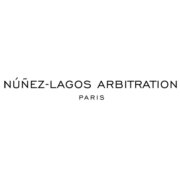Best Water Law Lawyers in France
Share your needs with us, get contacted by law firms.
Free. Takes 2 min.
Or refine your search by selecting a city:
List of the best lawyers in France
About Water Law in France
Water Law in France refers to the collection of legal frameworks, statutes, and regulations that govern the management, use, protection, and distribution of water resources throughout the country. This area of law is crucial due to water's essential role in public health, agriculture, industry, and environmental protection. French Water Law covers both surface water and groundwater, rivers, lakes, aquifers, public and private supply, pollution control, and the preservation of aquatic ecosystems. The French government and local authorities strictly regulate water rights, access, quality, and distribution to ensure sustainable usage for current and future generations.
Why You May Need a Lawyer
Engaging a lawyer specialized in French Water Law may be necessary in various situations. Common circumstances include disputes over water rights or access between landowners or neighbors, challenges regarding water use permits, or conflicts with local authorities over pollution or usage regulations. You may also need legal advice if involved in agricultural or industrial activities that require significant water resources, if you are facing penalties for alleged non-compliance with water quality standards, or if your property is affected by flood risk or new public water projects. Navigating the legal complexities of water allocation, environmental impact assessments, and administrative procedures often requires expert guidance.
Local Laws Overview
Water Law in France is primarily codified in the French Environmental Code, particularly within the "Code de l'environnement," which details water management, protection, and use. Key components include:
- Establishment of river basin agencies (Agences de l'eau) for decentralized water management
- The principle that water is part of the common heritage of the nation, emphasizing public stewardship
- Requirements for permits or authorizations for significant water extraction, discharge, or land modification affecting water bodies
- Strict regulation of water quality, pollution controls, and obligations for polluters to pay for remediation
- Integration of European Union directives, such as the Water Framework Directive, into national law
- Responsibilities for local municipalities in water supply, wastewater treatment, and stormwater management
- Public participation procedures for large water-related projects or environmental impact assessments
Compliance with these regulations is essential for individuals, farmers, businesses, and anyone conducting activities that might affect water resources.
Frequently Asked Questions
What is considered a water right in France?
In France, water is generally regarded as a national resource, and rights to use water are regulated by the state. Water rights often require an authorization or concession from the authorities, especially for large-scale use or modification of watercourses.
Do private landowners own water on their property?
Private ownership of water is limited in France. While landowners may have certain usage rights to water found on their land, the resource itself remains under the public domain, especially for significant bodies of water or aquifers.
How are water pollution disputes handled?
Disputes relating to water pollution are subject to strict liability rules. Polluters are required to restore conditions and may face administrative or criminal penalties. Victims can seek compensation or restoration through civil courts.
Who is responsible for maintaining riverbanks and watercourses?
The responsibility for maintaining watercourses and riverbanks often falls to the owner of adjacent properties, but local authorities or river basin agencies may be involved in upkeep and flood prevention according to the law.
Is a permit always required to use water for irrigation or industrial purposes?
For significant uses such as irrigation, industrial processes, or altering a watercourse, an administrative permit or authorization is usually required. Failure to obtain one could lead to sanctions.
What role do river basin agencies play?
River basin agencies (Agences de l'eau) manage water resources at a regional level, collecting fees, funding water infrastructure, monitoring usage, and ensuring compliance with regulations within their designated area.
How does the law address groundwater extraction?
Groundwater extraction is subject to authorization, depending on the intended use and volume. Excessive or unauthorized extraction can result in penalties to prevent resource depletion.
What happens if my property is at risk due to a public water project?
If your property is affected by expropriation, flooding, or restriction due to a public water project, you are entitled to information, public consultation, and potentially compensation, depending on the circumstances.
Are there regulations for private water supply and wells?
Yes, private wells and water supplies must comply with state and local health and environmental standards. Notification or authorization from local authorities may be required before construction or use.
How can I challenge a regulatory decision or permit about water use?
You can challenge administrative decisions by lodging an appeal with the issuing authority, and if necessary, bringing the matter before an administrative court. A water law specialist can guide you through this process.
Additional Resources
- Ministry of Ecological Transition (Ministère de la Transition écologique) - Responsible for policy, legislation, and enforcement on water resources
- Agences de l'eau - Six regional agencies managing water at the river basin level, providing funding and information
- Office français de la biodiversité - Involved in the protection and sustainable management of aquatic environments
- Local préfectures and municipal water services - First point of contact for permits and local water regulation issues
- Environmental associations and public information services - Often provide legal guidance and advocacy on water issues
Next Steps
If you believe you need legal assistance in the field of Water Law in France, it is important to start by gathering all relevant documents, such as permits, correspondence with authorities, and any scientific or technical reports. Identify your specific issue or objective, whether it is obtaining a permit, contesting a sanction, or defending your property rights. Contact a lawyer with experience in environmental and water law to discuss your case and develop a legal strategy. You may also wish to consult with local authorities or river basin agencies for technical information and guidance. Taking timely action is crucial, as many procedures have strict deadlines for appeals or applications.
In summary, dealing with water law issues in France involves understanding complex regulations and administrative processes, so seeking professional legal advice can help you protect your rights and achieve your goals efficiently.
Lawzana helps you find the best lawyers and law firms in France through a curated and pre-screened list of qualified legal professionals. Our platform offers rankings and detailed profiles of attorneys and law firms, allowing you to compare based on practice areas, including Water Law, experience, and client feedback.
Each profile includes a description of the firm's areas of practice, client reviews, team members and partners, year of establishment, spoken languages, office locations, contact information, social media presence, and any published articles or resources. Most firms on our platform speak English and are experienced in both local and international legal matters.
Get a quote from top-rated law firms in France — quickly, securely, and without unnecessary hassle.
Disclaimer:
The information provided on this page is for general informational purposes only and does not constitute legal advice. While we strive to ensure the accuracy and relevance of the content, legal information may change over time, and interpretations of the law can vary. You should always consult with a qualified legal professional for advice specific to your situation.
We disclaim all liability for actions taken or not taken based on the content of this page. If you believe any information is incorrect or outdated, please contact us, and we will review and update it where appropriate.
Browse water law law firms by city in France
Refine your search by selecting a city.

















